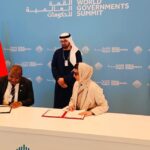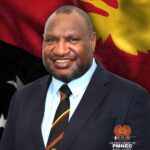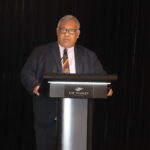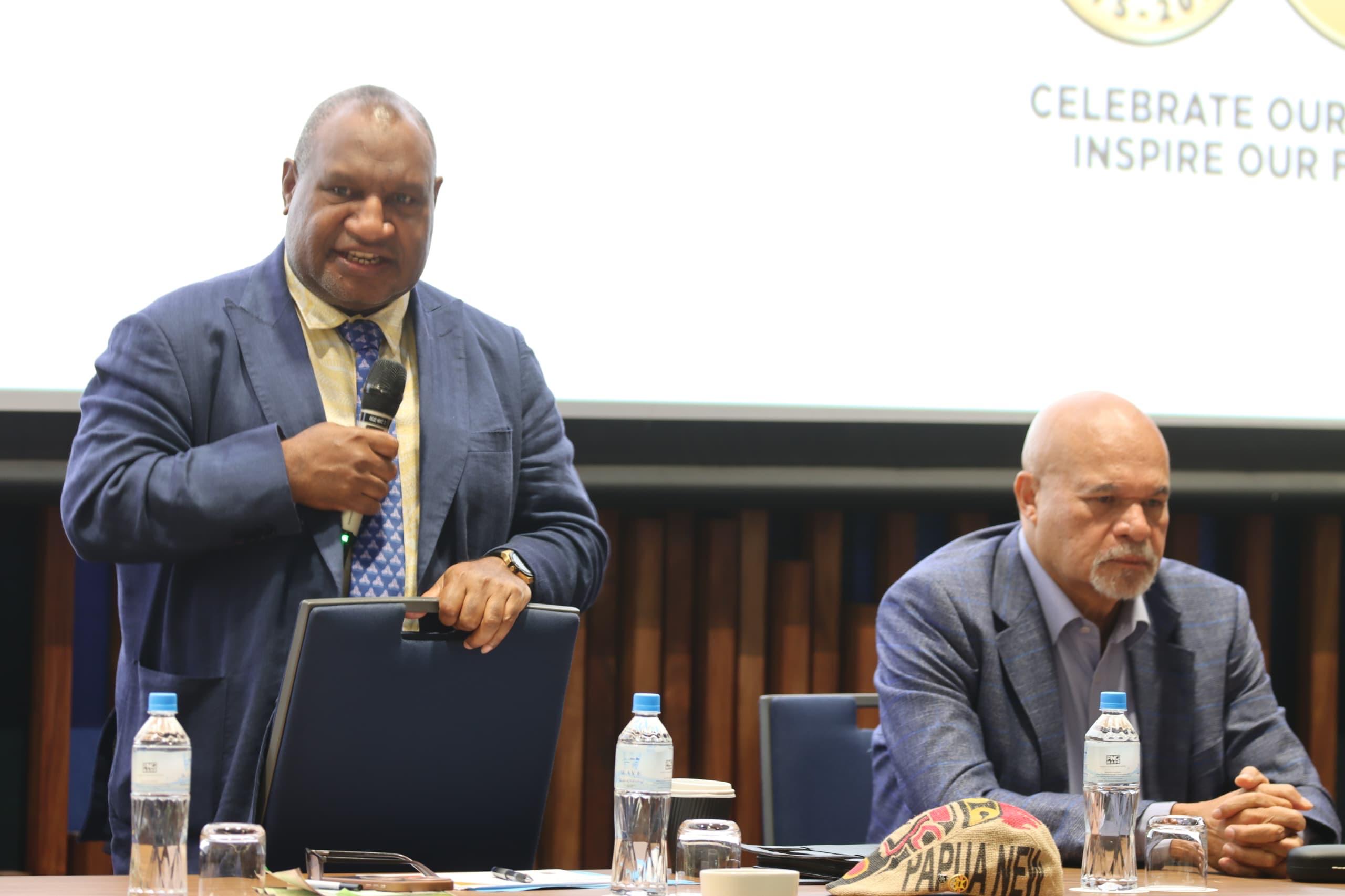Prime Minister Hon. James Marape has welcomed Treasury’s latest economic update, which projects stronger growth for Papua New Guinea in 2025, continued fiscal discipline, and targeted measures to ease cost-of-living pressures.
According to Treasury Secretary Andrew Oaeke’s presentation at the Government Caucus Leaders’ Meeting today, the PNG economy grew by 3.8 per cent in 2024—driven largely by the non-resource sector—and is forecast to strengthen to 4.7 per cent in 2025. The growth outlook is underpinned by steady Government investment, elevated commodity prices for gold, cocoa, and coffee, improved access to foreign exchange, and increasing production across key sectors.
“Our economy is now valued at more than K130 billion, and we remain firmly on track to achieve our goal of a K200 billion economy by 2030,” Prime Minister Marape said.
“This is the result of a deliberate strategy to grow the non-resource sector, maintain responsible public spending, and ensure that the benefits of higher commodity prices flow to our people.”
The Treasury update confirmed inflation is projected to remain stable at 4.5 per cent, supported by the Government’s recent decision to remove GST from essential goods including cooking oil, flour, tinned fish, rice, and sanitary products.
“This zero-rating policy is about putting money back into the pockets of ordinary Papua New Guineans,” Prime Minister Marape said. “It is part of our commitment to ensure that economic growth translates into tangible relief for families.”
Revenue and donor grants for the first half of 2025 totalled K9.76 billion, with the full-year estimate revised to K25.24 billion due to slower tax collection, particularly from GST, partly offset by stronger donor support. Expenditure for the same period was K11.90 billion, with operational costs—such as salaries for teachers and healthcare workers—making up nearly half.
Prime Minister Marape said the Government will continue to deliver on its 13-year Budget Repair Plan, aiming for a budget surplus by 2027 and a gradual reduction in public debt. He acknowledged the support of the IMF programem in maintaining fiscal stability and implementing reforms in governance, monetary policy, and anti-corruption measures.
“Treasury has identified the need for K1.68 billion in adjustments for the second half of the year, primarily through deferring some non-essential capital expenditure rather than increasing taxes,” the Prime Minister said. “We will ensure that these adjustments protect essential services and investments that directly benefit our people.”
While recognising risks such as global commodity price volatility, potential impacts of financial grey-listing, and exposure to natural disasters, Prime Minister Marape expressed confidence in PNG’s ability to sustain growth.
“Our economic strategy is built on diversification, resilience, and responsibility,” he said. “By strengthening our non-resource sector while maintaining resource sector capacity, we are safeguarding the livelihoods of our people and laying the foundation for long-term prosperity.”






